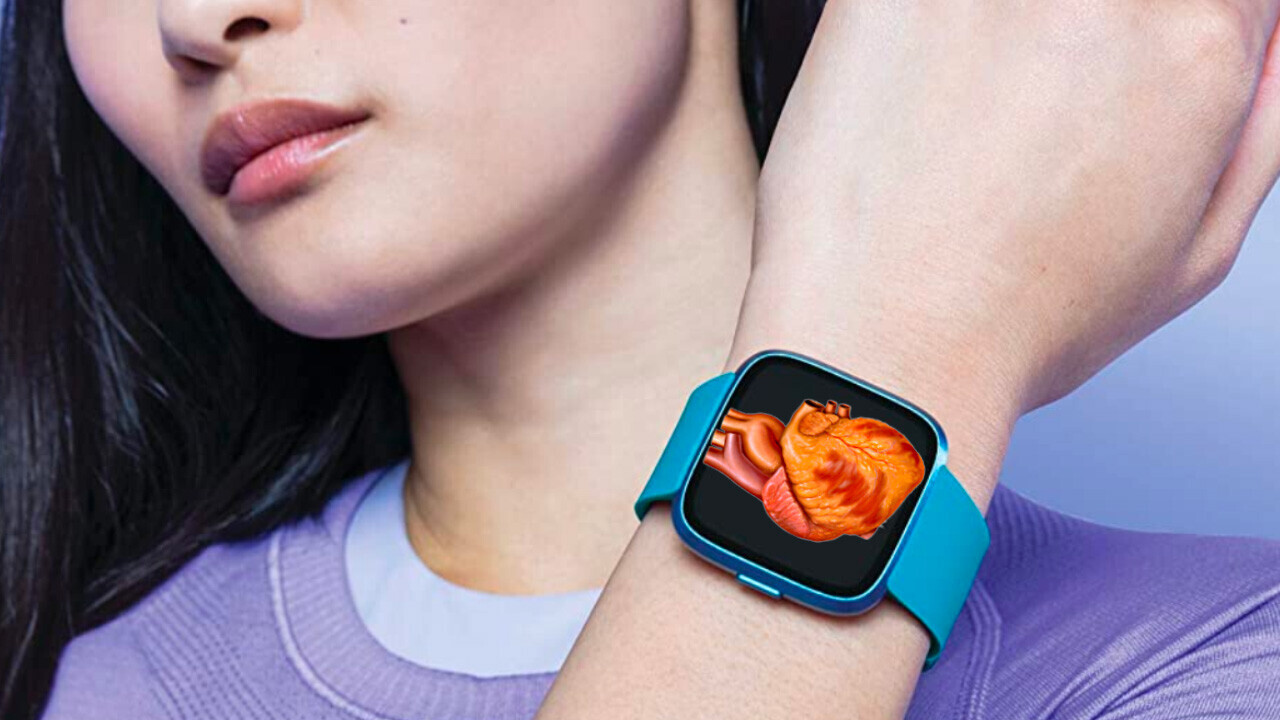
Fitbit has just vaulted over a huge hurdle: it can now continuously monitor users’ heart rhythms. This was authorized by the US’ Food and Drug Administration (FDA) — and takes the wearable company a step closer to combating the Apple Watch.
Google — the owner of Fitbit — declared that the FDA authorized the use of its new PPG (photoplethysmography) algorithm. This is used to identify atrial fibrillation (AFib), an irregular heart rhythm.
The reason monitoring for this condition (which impacts almost 33.5 million people across the globe) in the background is important is down its toughness to detect.
The new feature, named Irregular Heart Rhythm Notifications, tests users continuously, as the best way to discover the condition is at night or during rest.
The PPG algorithm and associated Irregular Heart Rhythm Notifications differs from the company’s ECG app, which was approved by the FDA in 2020. Although both can detect AFib, the ECG app must be manually run by the user, making it less optimal — especially as the condition appears sporadically.
To validate the use of the PPG algorithm, Google ran a study involving 455,699 participants. This showed that it correctly identified moments of atrial fibrillation 98% of the time.
While we don’t have a set date, Google stated it’ll roll out the PPG algorithm and the Irregular Heart Rhythm Notifications feature in the US “soon” — so keep your eyes peeled.
Another shot fired in the smartwatch war
This news reveals one avenue Google is taking in order to make the Fitbit range a fully-blooded competitor to the Apple Watch.
It’s no secret that the Cupertino-based company’s smartwatch is the wearable to beat. I mean, it’s consistently accounted for over 50% of global shipped units in this segment since its 2015 launch.
This is undoubtedly impressive, but what’s even more admirable is how Apple has continued to hold this market share, despite overall smartwatch sales skyrocketing.
As I discussed in this piece, the real turning point for the company came when its health features became good enough to save people’s lives. It was no longer a fancy gadget, but a fully-fledged health tool — and I believe this is what Google is aspiring towards with its Irregular Heart Rhythm Notifications feature.
In many ways, Fitbit is a perfect Apple Watch competitor. It has clear benefits over its rival, including a lower price and far better battery life. One thing that’s currently hindering the Google-owned gadget is, technically, it doesn’t have the range of Apple’s device.
Of course, this doesn’t mean that Google needs to include all the Watch’s bells and whistles on Fitbits, more that the key health features (specifically those that could be life-saving) should be roughly equal, especially if it wants to knock Tim Cook’s company off its smartwatch pedestal.
And the FDA’s authorization of the PPG algorithm shows how the Big G is planning on doing that: with wickedly clever software. In many ways, it’s how the company’s Pixel devices are battling iPhones.
Honestly, I hope Google and Fitbit truly challenge Apple’s wearable dominance. I’d love nothing more than an arms race between the companies, because if that happens it means we, the consumers, are the ones who end up winning.
Get the TNW newsletter
Get the most important tech news in your inbox each week.




